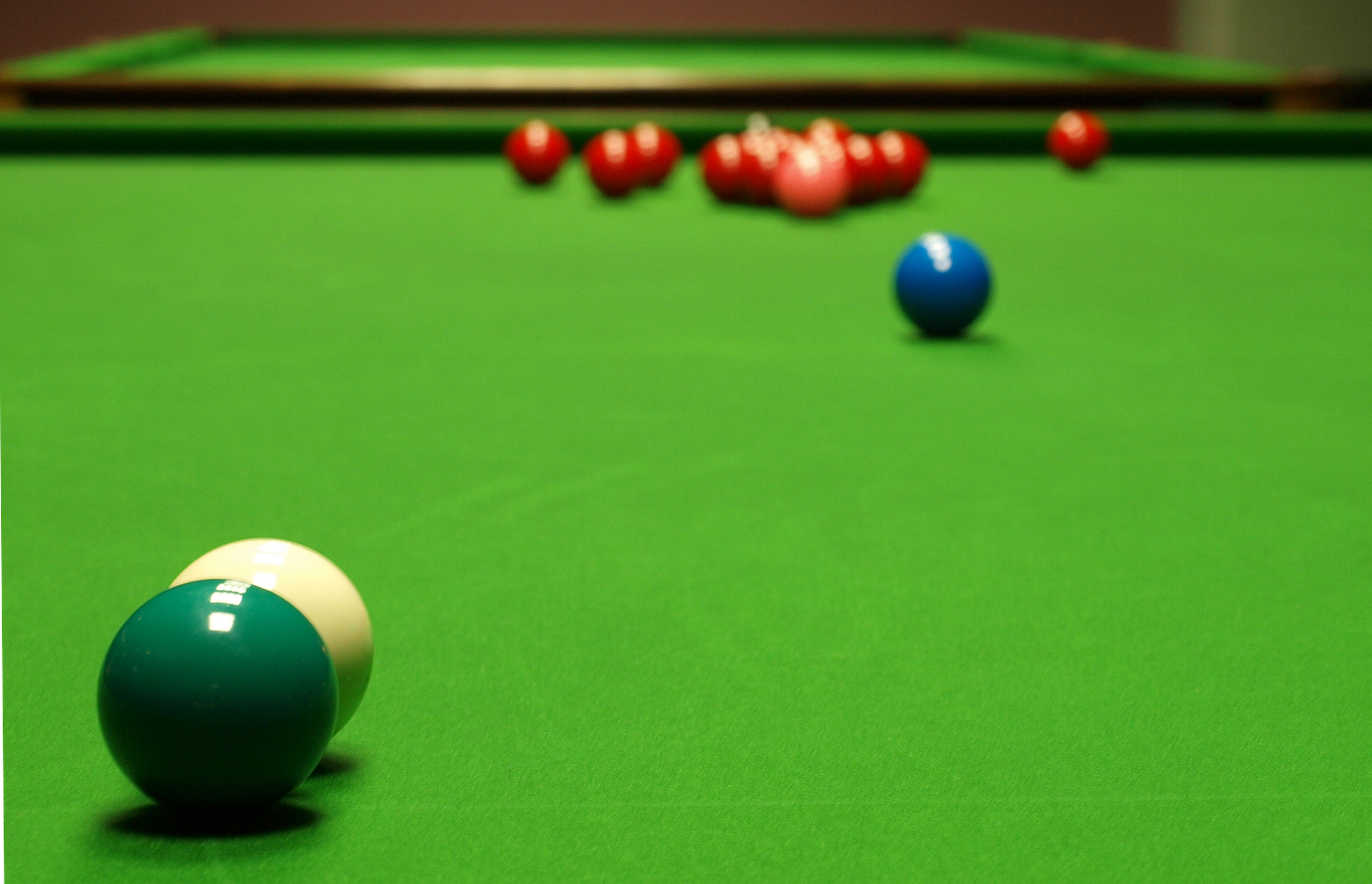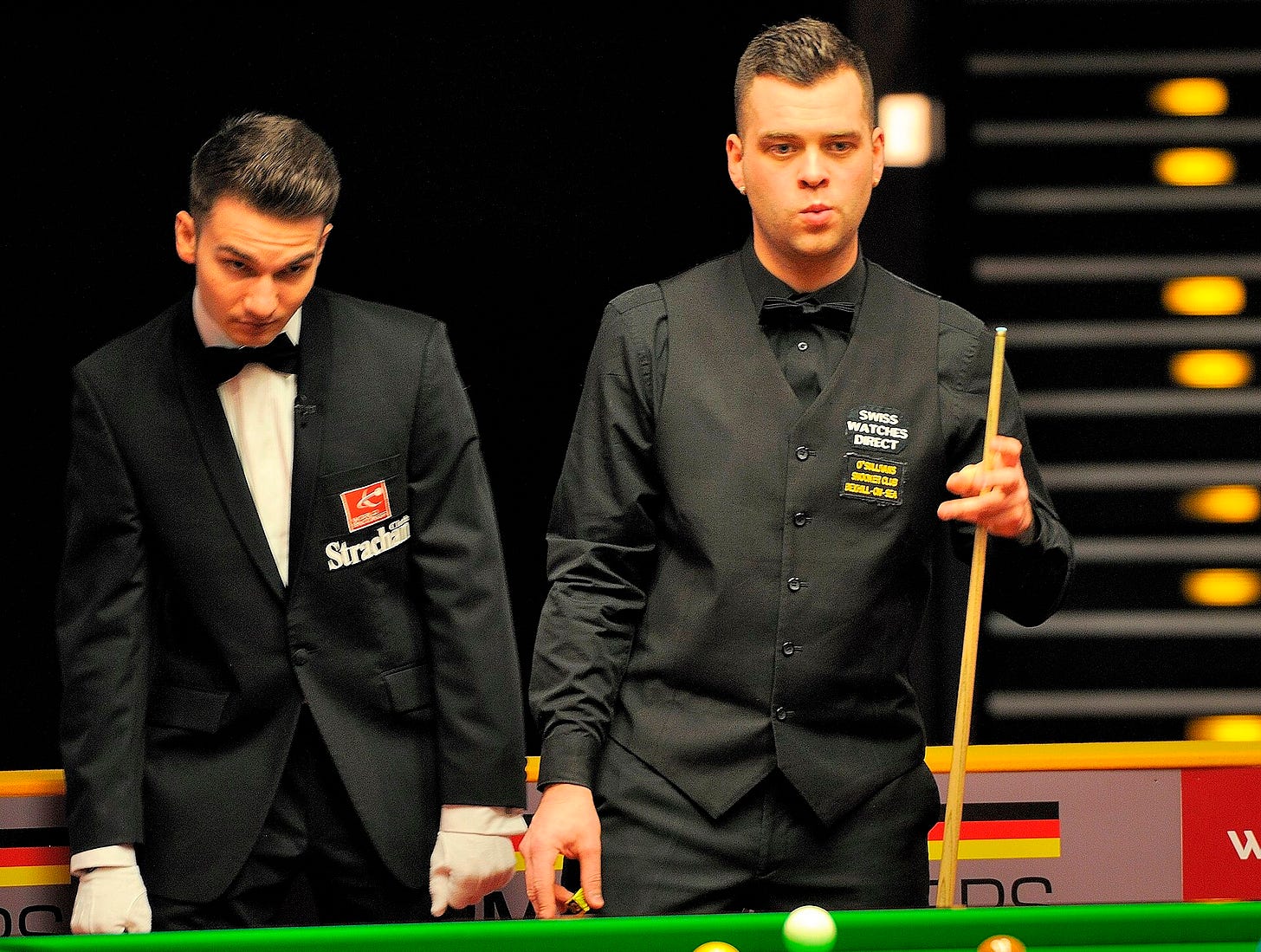Foul and a miss
When did trying stop being enough?
This is not about snooker. It is a Monday in August — you are either on holiday, about to go on holiday, or recently returned from holiday. Regardless, the last thing you need is me explaining Rule 14, Part a, Subsection ii of the Official Rules of the Game of Snooker and English Billiards. But bear with me.
Back in the 1980s, a player who was snookered — that is, unable to directly strike a legal shot at any ball — could hit a deliberate foul without fear of major consequence. They would incur penalty points, of course, but this was vastly preferable to hitting the ball and leaving their opponent with a frame-winning opportunity.
To clamp down on these so-called professional fouls, a new rule was introduced. If the snookered player fails to hit a legal shot, the referee calls ‘foul and a miss’. This means not only that the opponent is awarded penalty points, but also the right to ask for the cue ball to be returned to its original position. This sounds like a fairer system, but it is not without its critics1.
You see, some snookers are virtually impossible to escape from. This can lead to the bizarre and slightly tedious scenario in which a frame can be won not by crafty positional play and exceptional potting, but by passively accumulating penalty points. Consequently, referees are handed some discretion. If a legal shot is deemed completely unviable, and the snookered player is considered to have made his or her best efforts, a ‘miss’ is not called, and the cue ball is not replaced.
Trying times
When we are young, the concept of giving our best effort is repeatedly drilled into us. This makes a certain amount of sense. From the perspective of a parent or teacher, and outside of a few outliers, it is not obvious who will excel at what endeavour until they try it. Moreover, most children (and adults) are fairly hopeless at new things. Getting better — even if success is distant and ultimately unattainable — is the goal.
Yet despite grappling with the importance of effort, children often struggle to identify it in others. Like activist investors, they demand results. Have you ever failed — despite your very best efforts and as a result of road closures/airport fires/acts of god — to make it to your child’s sports day or concert? That you gave it the old college try tends not to elicit leniency from the judges.
Trying is a necessary but rarely sufficient condition for success. Effort must also be sensibly directed and combined with additional factors such as skill, strategic thinking and, more often than we would like to admit, luck. There are dangers too. Firing off scores of job applications a week is unlikely to secure many interviews.
In addition to being an all-time tennis great, relentless advocate for gender equality and inspiration for the Elton John hit single, Philadelphia Freedom, Billie Jean King is an inspirational quote machine. You may have heard of “Pressure is a privilege” but, partly out of an aversion to alliteration, I prefer, “Champions adjust”. The concision is worth the price of admission alone. Her point was that conditions will rarely be perfect. Plans will sometimes fail. The best players are those who adapt.
Good grief, we are veering dangerously close to one of those manosphere ‘peak performance’ podcasts. I wanted to do something different with today’s newsletter, following Friday’s 950-word, graph-filled analysis piece. That one did well, both on social media and in terms of driving new subscribers. This one has a less obvious audience and, in any case, may not have come off.
On the baize, effort is visible. A near-miss might still earn applause — and the referee’s clemency. But in real life, the rules are uncodified. Trying guarantees neither recognition nor success, and doing exactly what worked last time might still leave you needing snookers.




